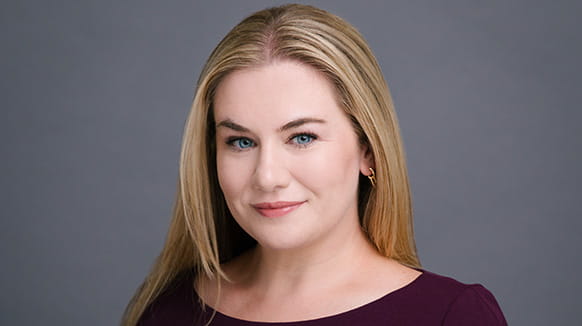Practical Strategies for Healthcare Providers to Limit Claims Involving Alleged Contraction of COVID-19 on Premises
Healthcare companies providing patient care during the pandemic must be vigilant, not only to prevent the spread of infection on their premises, but also to avoid lawsuits by patients, employees, and others who claim they contracted COVID-19 on the premises. This article describes best practices that healthcare providers should consider for limiting such claims.
Claims that May Arise Based on Alleged Infection on Premises
A plaintiff who claims to contract COVID-19 on a healthcare provider’s premises would likely bring some form of negligence claim, including general negligence, premises liability, and/or medical malpractice. The elements of these claims vary by jurisdiction, but in general, a plaintiff will need to prove (among other things) that the defendant owed a duty to the plaintiff, the defendant breached that duty by failing to act reasonably under the circumstances, and the breach proximately caused the plaintiff’s damages. A plaintiff may also assert negligence per se, arguing that the defendant violated a statute, rule, or regulation related to COVID-19 (such as Medicare Conditions of Participation) and the plaintiff contracted the illness as a result. Or, a plaintiff may assert fraud, claiming the healthcare provider misrepresented the safety precautions taken by the facility, the plaintiff relied on the alleged misrepresentation, and the plaintiff was injured as a result. Read the full article here.
QUICK SHOTS
HHS Settles Ninth Investigation in HIPAA Right of Access Initiative
On October 9, 2020, the Office for Civil Rights (OCR) at the U.S. Department of Health and Human Services (HHS) announced that it settled its ninth enforcement action in its HIPAA Right of Access Initiative, which involved failure to provide timely access to medical records after a patient’s request. The press release is available here. This most recent investigation resulted from an individual’s complaint that she had made multiple requests for her medical records to a private medical practice specializing in neurology and pain management (the “Practice”). While the Practice provided some of the records, it did not provide the diagnostic films that the individual specifically requested. In October 2020 (over a year after the initial request), the individual received all of the requested medical records. The Practice agreed to take corrective actions and pay $100,000 to settle the potential violation of HIPAA’s right of access standard.
OCR Resolves Two More Religious Discrimination Complaints
On October 20, 2020, the OCR announced that it resolved two more religious discrimination complaints ensuring clergy access to patients for religious purposes during the COVID-19 pandemic. Both health systems involved received technical assistance from OCR based on CMS guidance explaining adequate and lawful access to chaplains or clergy in hospital visitations during the COVID-19 pandemic. The press release and links to the health systems’ updated policies are available here.
HIPAA Data Breach Settlements
HHS settled three HIPAA breach investigations in September, ranging in amounts from $1.5 million to $6.85 million, which represented the second-largest payment to resolve a HIPAA investigation in the OCR’s history. This settlement was made by a health insurer for potential violations related to a cyberattack in which hackers used a phishing email to install malware, resulting in the disclosure of over 10 million individuals’ protected health information (PHI). HHS also settled with a HIPAA Business Associate, who agreed to pay $2.3 million along with the adoption of a corrective action plan for potential violations related to a breach affecting over 6 million people also caused by a cyberattack. Lastly, an orthopedic clinic agreed to pay $1.5 million following a hacker’s exfiltration of a database of its patient records that affected 208,557 individuals and included social security numbers, medical procedures, test results, and health insurance information.
New Phase 3 Provider Relief Funding
On October 1, 2020, HHS, through the Health Resources and Services Administration (HRSA) announced $20 billion in new funding for providers on the frontlines of the COVID-19 pandemic. The press release is available here. On October 22, 2020, HHS, through HRSA, expanded the eligibility requirements and updated the reporting requirements to broaden the use of provider relief funds. The press release is available here. This Phase 3 General Distribution is available to: (1) providers who have already received Provider Relief Fund payments, (2) providers who began practicing January 1, 2020 through March 31, 2020, and (3) behavioral health providers, chiropractors, residential treatment facilities, eye and vision services providers, and others. The Phase 3 General Distribution is designed to balance an equitable payment of 2 percent of annual revenue from patient care for all applicants plus an add-on payment to account for changes in operating revenues and expenses from patient care, including expensed incurred related to COVID-19. All payment recipients will be required to accept the associated terms and conditions. Providers can apply for funds from October 5, 2020 through November 6, 2020.
Information Blocking Rules
The U.S. Department of Health and Human Services Office of the National Coordinator for Health Information Technology (ONC) and Centers for Medicare & Medicaid Services (CMS) issued final rules implementing interoperability and patient access provisions of the 21st Century Cures Act. The final rules are available here. These rules include new information blocking regulations that restrict healthcare providers and other entities from interfering with the access, exchange, or use of electronic health information, which are currently set to take effect on November 2, 2020. On October 29, 2020, in response to the COVID-19 public health emergency, the ONC released an interim final rule with comment period that extends the compliance dates for these information blocking provisions to April 5, 2021. The IFR is available here.
Advisory Opinion on Pharmaceutical Manufacturer’s Proposal to Provide Cost-Sharing Assistance Directly to Medicare Beneficiaries
On September 18, 2020, the HHS Office of Inspector General issued an advisory opinion regarding a pharmaceutical manufacturer’s proposal to provide cost-sharing assistance directly to Medicare beneficiaries who are prescribed either of two formulations of its drug, concluding that the proposed arrangement would not generate prohibited remuneration under the civil monetary penalty provisions prohibiting inducements to beneficiaries, but would potentially generate prohibited remuneration under the anti-kickback statute if the required intent was present. The advisory opinion is available here.

